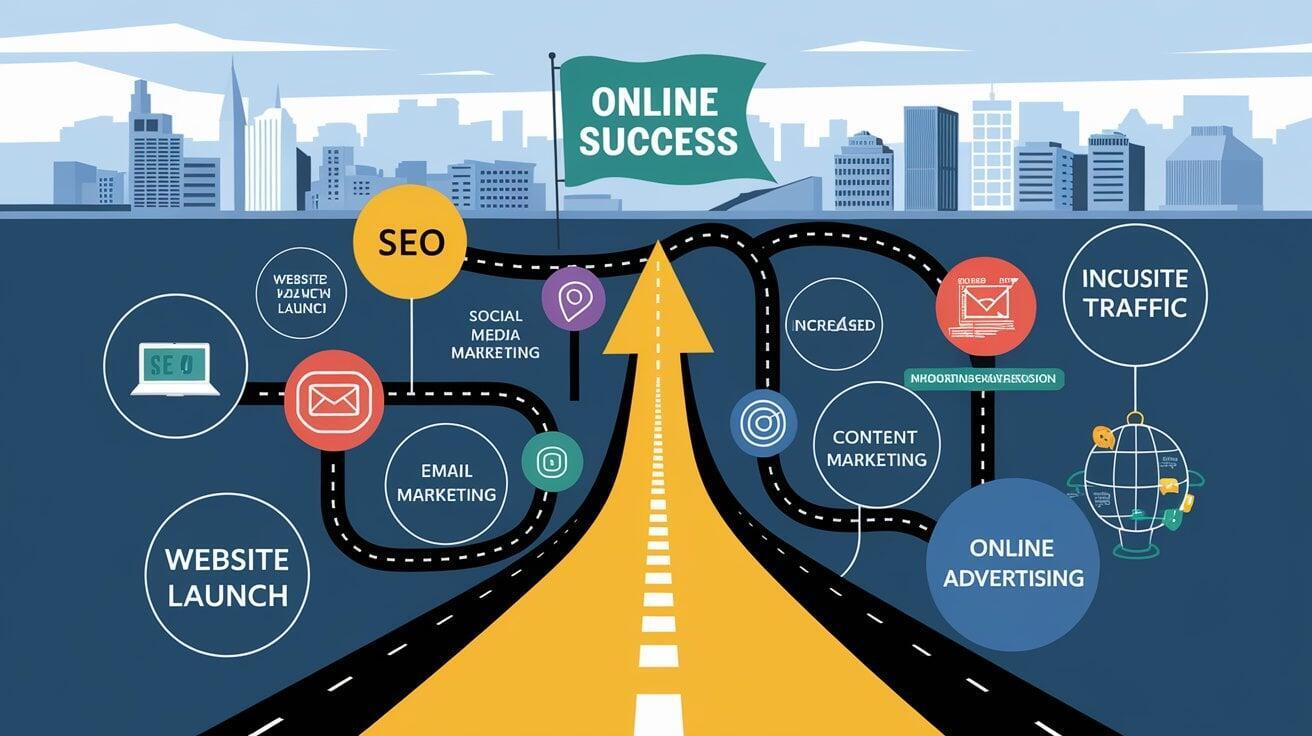Introduction
In today’s competitive digital landscape, having a digital marketing planner is crucial for businesses looking to maximize their online success. A well-structured plan helps streamline marketing efforts, improve efficiency, and drive better results. Whether you’re a startup, a small business, or a large enterprise, a digital marketing planner can transform your online strategy and boost your ROI.

What is a Digital Marketing Planner?
A digital marketing planner is a strategic tool that helps businesses organize, execute, and analyze their digital marketing efforts. It includes elements such as content schedules, SEO strategies, social media plans, email marketing campaigns, and performance tracking.
Why You Need a Digital Marketing Planner
1. Stay Organized and Focused
A digital marketing planner keeps all your marketing activities structured and goal-oriented, preventing wasted efforts.
2. Enhance Productivity
By outlining clear tasks and timelines, a digital marketing planner boosts efficiency, ensuring that your team stays on track.
3. Improve Content Strategy
A well-planned content calendar ensures consistency in publishing, keeping your audience engaged and improving SEO rankings.
4. Better Resource Allocation
Knowing when and where to allocate resources ensures that your marketing budget is spent wisely for maximum returns.
Key Components of a Digital Marketing Planner
1. SEO Strategy
A solid SEO plan is a crucial part of any digital marketing planner. This includes keyword research, on-page optimization, link-building strategies, and performance tracking.
2. Content Marketing Plan
Your digital marketing planner should include a well-defined content strategy, covering blog posts, videos, infographics, and more.
3. Social Media Scheduling
Using a digital marketing planner, you can schedule posts in advance, ensuring a consistent online presence and engagement with your audience.
4. Email Marketing Calendar
Plan your email campaigns, segment your audience, and automate your messaging for better open and conversion rates.
5. Paid Advertising Strategy
Track and optimize your PPC campaigns to ensure you’re reaching the right audience at the right time.

How to Create a Winning Digital Marketing Planner
Step 1: Define Your Goals
Start by setting clear, measurable goals. Whether it’s increasing website traffic, generating leads, or boosting sales, your digital marketing planner should align with these objectives.
Step 2: Identify Your Target Audience
Understanding your audience helps you craft personalized marketing messages that resonate and convert.
Step 3: Choose the Right Marketing Channels
Select the most effective platforms for your business, such as SEO, social media, email marketing, and PPC.
Step 4: Develop a Content Calendar
Plan your content in advance to ensure consistency, quality, and alignment with your marketing goals.
Step 5: Monitor and Optimize Performance
Regularly track your marketing efforts using analytics tools and make necessary adjustments to improve results.
Best Tools for Digital Marketing Planning
Google Analytics – Track website performance and user behavior.
SEMrush – Conduct keyword research and analyze competitors.
Trello/Asana – Organize and manage marketing tasks.
Hootsuite/Buffer – Schedule and monitor social media posts.
Mailchimp – Automate email campaigns.
Conclusion
A digital marketing planner is essential for businesses looking to maximize their online potential. By staying organized, optimizing resources, and monitoring performance, you can achieve sustainable growth and long-term success. Start implementing a digital marketing planner today to take your online marketing efforts to the next level.
